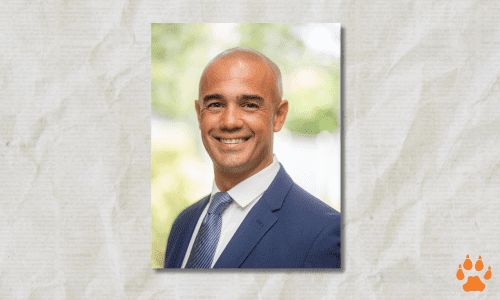By: Jayson DiMaria, Esq | jayson@dimarialaw.com
As an immigration attorney for over 20 years, specializing in deportation defense and family-based immigration, I’ve watched five presidents tackle the immigration issue. Each has promised to “solve” the problem through measures like closing the border and increasing deportations, yet none have succeeded in addressing the root of the issue.
President Trump’s approach focuses on three main actions: closing the border, arresting undocumented immigrants with any type of criminal history, and deporting individuals who were previously deported but re‑entered illegally. These actions resonate with many Americans, as the removal of individuals with criminal records is often seen as a priority.
However, what has gone largely unaddressed for over 25 years is the issue of the millions of undocumented, working‑class immigrants who live in the shadows. These individuals typically have no criminal history, have established families in the United States, and contribute to the economy in various ways. Yet, they do not pay taxes, lack access to healthcare, and do not have Social Security numbers, leaving them “off the grid.”
Why hasn’t this group been targeted for deportation? The answer lies in practicality. These individuals have the legal right to have their cases heard in immigration court, and the backlog is staggering. For example, in my current caseload of 500 cases, most have been pending for over 10 years. Deporting millions of people from this group would also have a devastating impact on the economy, creating labor shortages in industries that rely heavily on their work.
A PRACTICAL MIDDLE GROUND
To move forward, we must meet the concerns of both sides. Many conservatives want undocumented immigrants to pay taxes, avoid being a burden on the healthcare system, and face some form of accountability for entering the country unlawfully. Meanwhile, undocumented immigrants want to live without the constant fear of arrest, buy homes, establish roots, and travel freely.
The solution must balance these concerns while acknowledging the logistical impossibility of deporting millions of people. Here’s a potential path forward:
- Provide Legal Work Authorization:
Grant undocumented, working‑class immigrants an employment authorization card, Social Security number, and driver’s license. This allows them to work legally, pay taxes, and contribute to the system. - Implement a Penalty and Pathway:
To address the unlawful entry, require a penalty fee—such as $1,000—to enroll in the program. Over time, allow participants to apply for a green card after completing a probationary period, such as five years, during which they remain employed, pay taxes, and maintain a clean record. - Simultaneously Secure the Border:
Border security measures should continue alongside this program. While achieving a fully secure border will take time, addressing the current population of undocumented immigrants and preventing new illegal entries must occur simultaneously.
This approach is not amnesty. It doesn’t grant automatic permanent residency or citizenship but provides a legal pathway for people already contributing to our economy to formalize their status. The penalty fee alone—multiplied by millions of participants—would inject significant revenue into the system. More importantly, it would transform undocumented immigrants into contributors, helping to stabilize industries and strengthen the tax base.
CONCLUSION
The immigration issue has been a source of political gridlock for decades. People do have a valid argument that people should just immigrate here the right way, legally. However, most people don’t realize that currently, the wait times to come here legally are extraordinarily long. For instance, the current wait time for a Mexican sibling of a U.S. citizen to come to the United States is 24 years; the wait time for a U.S. citizen to sponsor his married son or daughter is 25 years; the wait time for unmarried sons or daughters of U.S. citizens from various countries is 10 years. The visa wait times can be seen at travel.state.gov. You will see that the wait times to do it the right way are very long. Although there is no excuse for entering the U.S. illegally, we do have a broken system with hardly any options to immigrate here legally within a normal time frame. We need a new practical solution—like the one outlined above—that could address concerns on both sides of the aisle while recognizing the economic and logistical realities of the situation. It’s time to move past rhetoric and implement a plan that reflects both compassion and practicality.
ABOUT JAYSON DIMARIA, ESQ.
Jayson DiMaria, Esq., graduated from William Paterson University and Michigan State University College of Law. He has dedicated himself to the practice of both immigration and criminal law. Jayson is an attorney at law of the State of New Jersey and is authorized by law to practice immigration law throughout all of the United States. Contact him at The DiMaria Law Firm, LLC, 973‑934‑5854. dimarialaw.com facebook.com/dimarialawfirm








